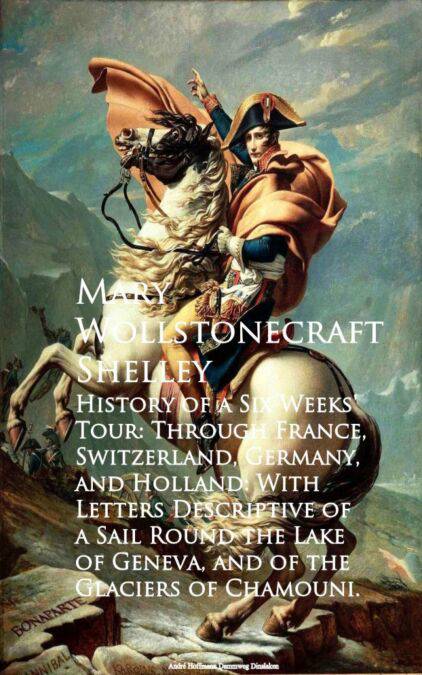
- Afhalen na 1 uur in een winkel met voorraad
- Gratis thuislevering in België vanaf € 30
- Ruim aanbod met 7 miljoen producten
- Afhalen na 1 uur in een winkel met voorraad
- Gratis thuislevering in België vanaf € 30
- Ruim aanbod met 7 miljoen producten
Zoeken
History of a Six Weeks' Tour E-BOOK
Through France,rs of Chamouni
Mary Wollstonecraft Shelley
E-book | Engels
€ 0,99
Uitvoering
Omschrijving
Nothing can be more unpresuming than this little volume. It contains the account of some desultory visits by a party of young people to scenes which are now so familiar to our countrymen, that few facts relating to them can be expected to have escaped the many more experienced and exact observers, who have sent their journals to the press. In fact, they have done little else than arrange the few materials ivwhich an imperfect journal, and two or three letters to their friends in England afforded. They regret, since their little History is to be offered to the public, that these materials were not more copious and complete. This is a just topic of censure to those who are less inclined to be amused than to condemn. Those whose youth has been past as theirs (with what success it imports not) in pursuing, like the swallow, the inconstant summer of delight and beauty which invests this visible world, will perhaps find some entertainment in following the author, with her husband and sister, on foot, through part of France and Switzerland, and in sailing with vher down the castled Rhine, through scenes beautiful in themselves, but which, since she visited them, a great Poet has clothed with the freshness of a diviner nature. They will be interested to hear of one who has visited Mellerie, and Clarens, and Chillon, and Vevai—classic ground, peopled with tender and glorious imaginations of the present and the past.
They have perhaps never talked with one who has beheld in the enthusiasm of youth the glaciers, and the lakes, and the forests, and the fountains of the mighty Alps. Such will perhaps forgive the imperfections of their narrative for the sympathy which the adventures and feelings which it recounts, viand a curiosity respecting scenes already rendered interesting and illustrious, may excite.
The Poem, entitled "Mont Blanc," is written by the author of the two letters from Chamouni and Vevai.
They have perhaps never talked with one who has beheld in the enthusiasm of youth the glaciers, and the lakes, and the forests, and the fountains of the mighty Alps. Such will perhaps forgive the imperfections of their narrative for the sympathy which the adventures and feelings which it recounts, viand a curiosity respecting scenes already rendered interesting and illustrious, may excite.
The Poem, entitled "Mont Blanc," is written by the author of the two letters from Chamouni and Vevai.
Specificaties
Betrokkenen
- Auteur(s):
- Uitgeverij:
Inhoud
- Aantal bladzijden:
- 126
- Taal:
- Engels
Eigenschappen
- Productcode (EAN):
- 9783736415881
- Verschijningsdatum:
- 24/09/2016
- Uitvoering:
- E-book
- Beveiligd met:
- Digital watermarking
- Formaat:
- ePub

Alleen bij Standaard Boekhandel
Beoordelingen
We publiceren alleen reviews die voldoen aan de voorwaarden voor reviews. Bekijk onze voorwaarden voor reviews.








